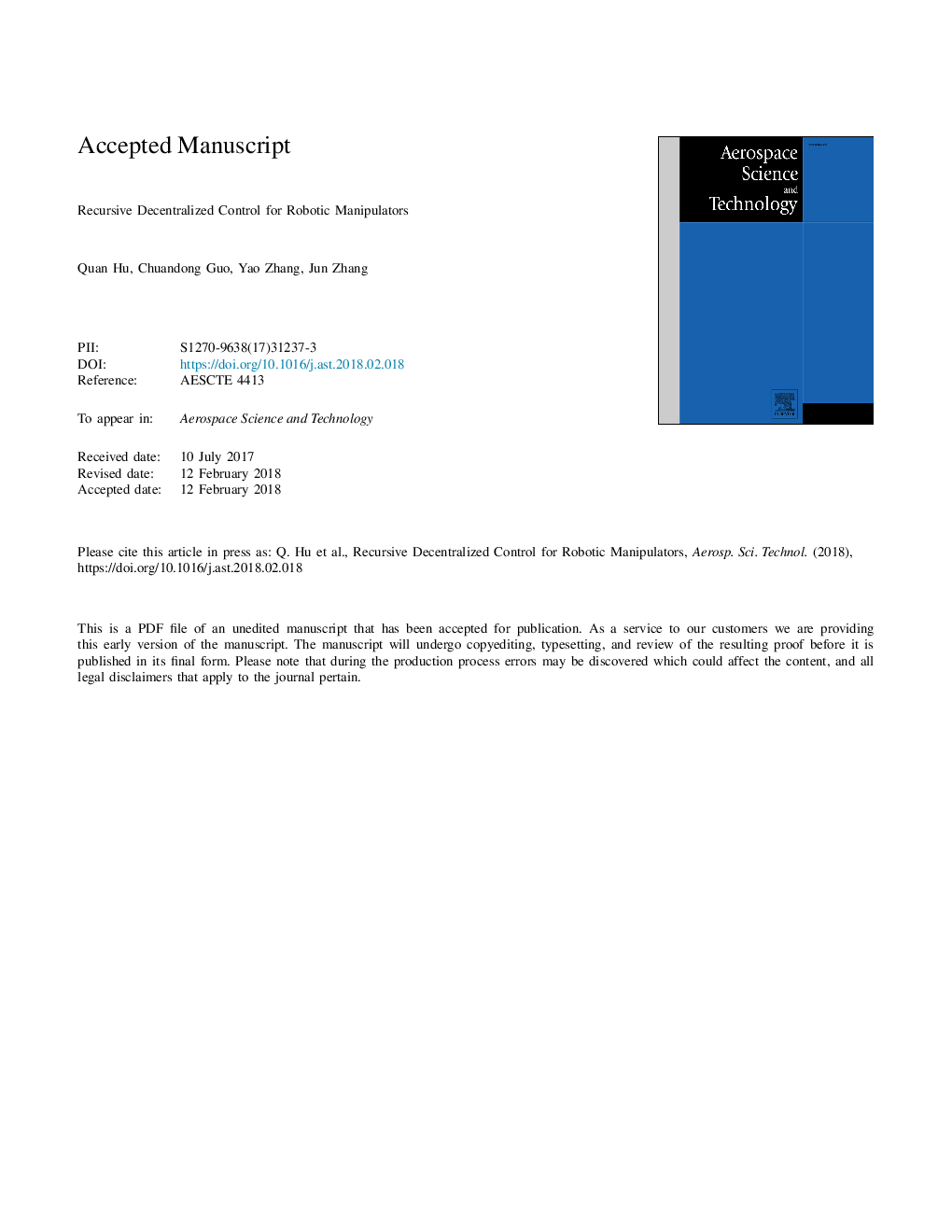| Article ID | Journal | Published Year | Pages | File Type |
|---|---|---|---|---|
| 8057910 | Aerospace Science and Technology | 2018 | 27 Pages |
Abstract
In the standard centralized motion controllers for trajectory tracking of space manipulators, a precise centralized dynamic model is required, thus demanding high computational cost and large memory for applications. In the decentralized controllers, the space manipulator is viewed as a set of independent second-order subsystems, while the control law only depends on local measurements in each joint. Normally, the decentralized control is quite simple to real-time implement and induces a very limited computational burden. However, the control performance would be degenerated since the interactions among the subsystems, such as dynamic coupling forces and moments, are neglected. Therefore, this paper presents a compromise between the centralized and decentralized controls - a recursive decentralized strategy. First, the interactions at the joints connecting two adjacent links are explicitly modeled by the recursive algorithm for multibody systems dynamics. Then, a decentralized robust control is designed under the assumption that communications are allowed in the decentralized controllers. The communicated information includes the relative motion states at the joints, the geometry and mass parameters, and the control torques. These communications enable to recursively construct the nominal part of the physical interactions for compensation. An adaptive robust strategy is further designed in the decentralized control to improve the control performance. Finally, numerical examples are conducted for a space manipulator to verify the effectiveness of the proposed control scheme.
Related Topics
Physical Sciences and Engineering
Engineering
Aerospace Engineering
Authors
Quan Hu, Chuandong Guo, Yao Zhang, Jun Zhang,
